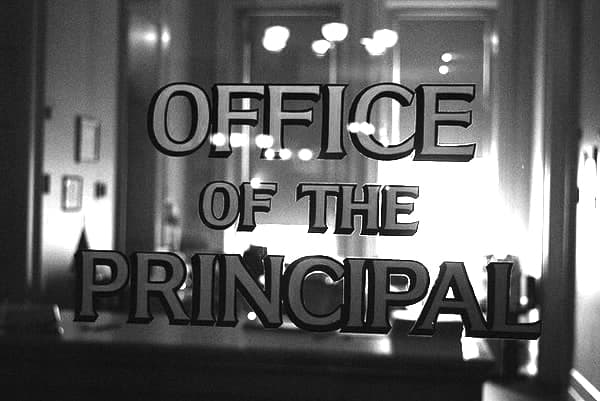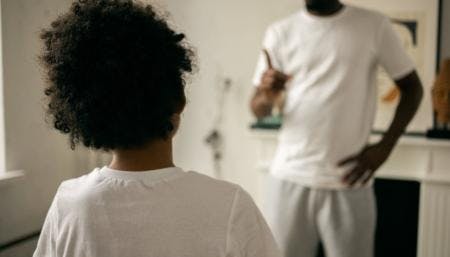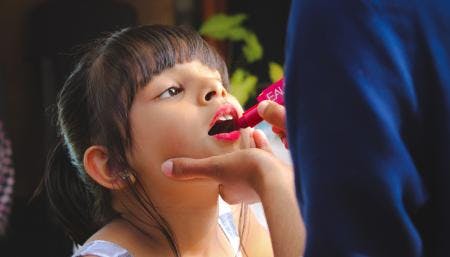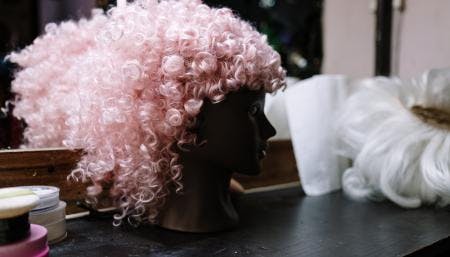Yes, My Kids Always Get Sent to the Principal’s Office
6 Min Read•July 9, 2015•Dana Keller

I’ve lost sleep for many nights now, waking up in the middle of the night, worried about the future of my teenage sons. Over the years, they have both had challenges with school, sometimes alternately, sometimes simultaneously, adding numerous grey hairs under my “natural” brown hair. After the 16-year-old leaves for school and I drop the 14-year-old off at his, my day is spent looking in dread at the caller ID on the phone each time it rings. “Mrs. Keller? This is Mr. So and So at Such and Such school. Could you come pick up your son?”
I am THAT parent of THOSE kids. The ones that get in trouble. The ones who get sent to the principal’s office—something I spent my entire school career trying to avoid. And somehow, every time I get that call and make the long, anxious trip to school, then enter that office with my tail between my legs, I am suddenly 10 or 13 or 16 again and haven’t managed to avoid the principal’s office at all. I see the sad, sullen face of whichever boy of mine managed to make an impulsive, regrettable decision and I am distraught.
In that moment, I feel ashamed and heartbroken. Perhaps I should be angry, but all I can think of is how great this young man of mine is. I know his heart, his intent, and his remorse. They are not malicious, my sons. They are not bullies or druggies or vandals. Their infractions usually center around disrespect, or controlling their emotions. Somehow I have raised two kids with no tolerance for bullshit or ineptitude, for which I am proud, and yet I have failed to teach them how to contain their contempt and frustration. Perhaps we cannot teach our children what we fail to do ourselves.
As this man (always a man) charged with being school disciplinarian looks at me and articulates the wrongdoing of my offspring, thoughts swarm in my head. My heart races. When he finishes, his words hang heavy in the room as I hear the soft sniffles of my son, head hanging, nose dripping. This man is waiting for me to say something. To give him some explanation of my failing or my son’s, to get angry or defensive, or give him some clue about what great parenting technique I am going to employ to change my son’s behavior. Or better yet, what punishment I will dole out that will be painful enough that he will never sin again.
But I don’t know what to say that will fulfill this man’s need. Sitting there calmly, my demeanor belies the tempest inside me. I hear words fall lamely from my mouth to somehow convince him that I am a good mother, an effective parent. Really I am just trying to move through this as quickly as possible so that I can race my child in slow motion out of that office and into the car and the safety of our home. I want out from under this magnifying glass hovering over his behavior and my parenting. Truthfully, the safety is partially for him and mostly for me.
The car ride home is usually quiet at first. After a few minutes when I think I have collected myself, I begin to talk, to question him, but the tears always come. Tears of sadness for him and his situation. Tears of distress that I have somehow failed him. Tears of frustration that here we are, once again, neither one of us learning how to prevent a repeat performance of his poor judgment. He sits, quietly, knowing that this is the second part of the torture that is his punishment for his behavior—me trying to force him to talk about his thoughts and feelings.
Usually, eventually, he will toss some crumb to me of what is going on inside that head and heart of his. It will have to suffice, because the more I push, the more he steels against my prodding. Sometimes, there is some consequence doled out—you can’t use the car, you’re grounded this weekend—and he slinks off to his room, texting, I’m sure, his real thoughts and feelings to his lifeline of friends.
Just as a wave peaks, then crashes, the drama of the event subsides over the next hours, running swiftly yet calmly up the shore. This is when inside I question myself, and begin the rumination over the details of the incident, trying desperately to find the key to what will change my son so we don’t have to do this again. It involves conversations with my husband—mostly me puking my thoughts and feelings on him—as well as time spent looking for counselors, diagnoses, medication, personal development programs and more. I am going to “fix” them, you see. I will show the world and that man sitting in the chair across from me at their schools that I am a good mother. They are good boys.
Years of this are beginning to take their toll on me and on them. I am spent. I am faced with what I know is true. I have two sons who are smart, funny, kind, thoughtful, emotional, creative, and strong-willed. While their personalities are so different, they share these traits. I am proud of the people they are and the men they are becoming. I raised them—intentionally and unintentionally—to question, even authority, to be different, to be passionate, and in doing so, to be messy. They are not on a straight and narrow path—they are on a divergent one, a bumpy and beautiful one of their own making.
In my heart, I knew this is what I wanted for those sweet little babies placed in my arms so many years ago, but I had no idea how difficult it would be for them to experience and for me to watch. I know my friends are facing the challenges of watching their kids go off into the world on their own as well, but I can’t help but feel that they have the reassurance of seeing down the road their son or daughter is on, even just a ways, while my son is standing in a jungle and I have no idea what is behind that next whack of his machete as he clears a path in front of him.
The days when they’ve gotten in trouble at school often end with dinner together, or sitting on the sofa watching T.V. and we find ourselves laughing at some You Tube video they are showing me, or they pull me in to listen to their latest guitar riff or drum solo. I see once again who they really are and I know in my heart I am a good mom. They are good boys. I valiantly try to let go of who I expected them to be, and desperately strive to embrace who they are and who they are becoming. It isn’t easy. But it is the work I am most proud of.
Dana is in the midst of parenting her two teenage sons. She and her husband, Jim, moved their family from Seattle to Scottsdale about five years ago. After almost 20 years of writing training programs, Dana is exploring other avenues of writing and public speaking.




